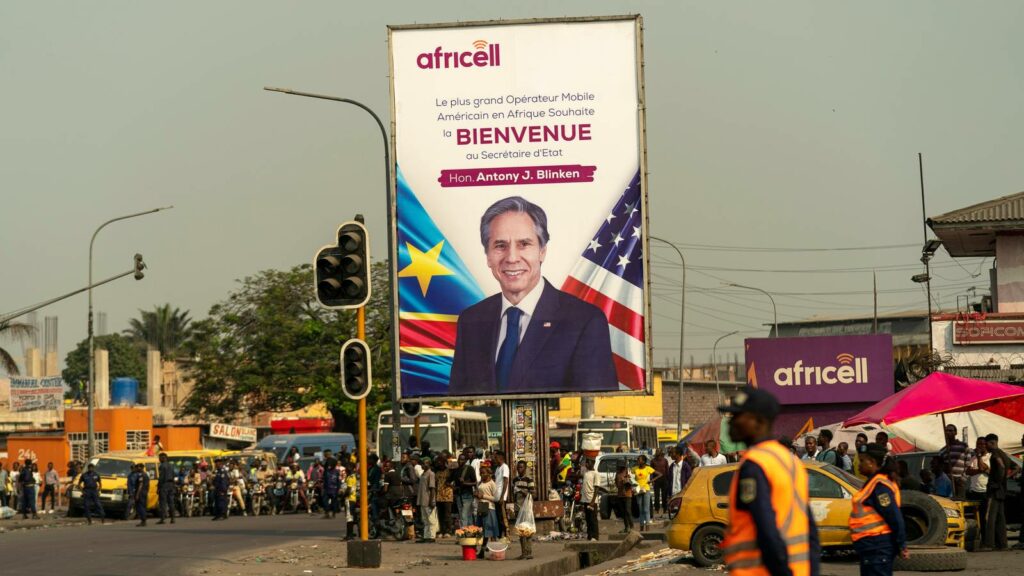Suddenly, the US, Russia and France are spending time and effort nurturing their African friendships - it's a new cold war, writes NRK.
- The US approach to Africa has been the same for a long time. "Africa is an important continent, but not that important". Now there has been a change. The US now sees Africa as an important strategic partner.
That's according to Gilbert Khadiagala, director of the African Centre for the Study of the United States and professor of international politics at the University of Witwatersrand in South Africa.
Fewer index fingers than before
The professor keeps a close eye on US Secretary of State Antony Blinken as he travels from capital to capital in Africa.
The trip started in South Africa, where he presented the USA's brand new Africa plan. He then travelled to the Democratic Republic of Congo, before ending his trip in Rwanda.
Khadiagala believes that the US's new plan also shows a completely new American approach to Africa.
He believes that Secretary of State Blinken's trip to Africa so far has shown that the US has decided to talk about issues that the US and Africa have in common, rather than pointing the finger and talking about issues on which they disagree.

South Africa's foreign minister does not want to be "bossed around"
The new US Africa plan does state that the US will work for open societies to counteract "harmful activities from China, Russia and other foreign actors".
But instead of persuading African countries to turn their backs on China and Russia, the professor believes that Blinken would rather use his energies to emphasise what the US can offer.
- "Blinken was very subdued in his criticism. And I think it was a well-thought-out strategy to emphasise topics that unite Africa and the US," says Khadiagala about the meetings in South Africa.
There are many indications that Blinken chose the right strategy. When he and South Africa's Minister of Foreign Affairs, Naledi Pandor, held a press conference, the South African minister was clear about his views on dictates from major powers.
- "One thing I definitely dislike is being told that you have to do this or that... I don't want to be bullied like that, and I don't think other African countries do either," Pandor told the assembled press corps, according to the Washington Post.
Professor Khadiagala believes Pandor's comment reflects the thinking of many African countries; they are open and interested in co-operation with the US, but they also want to have autonomy over whether they want to cooperate with other countries.
The great powers are queuing up
And there's no shortage of countries that want to work with Africa.
- France sent its president on a trip to Africa earlier this summer. Ever since the colonial era, the old European superpower has regarded its former colonies as important partners.
- For many years, China has had its many engineers in place to build a wide range of buildings, as well as roads and railways. In addition, China is investing heavily in African natural resources.
- Over the past couple of years, Russia has strengthened its co-operation with some African countries. In particular, the Russians offer mercenaries and weapons.
Khadiagala believes that Russia's diplomatic efforts in recent years were given added impetus when many African countries abstained when the UN General Assembly voted on a resolution that extensively criticised Russia's invasion of Ukraine.
- "It was expected that many countries would be critical of Russia. But the vote has given Russia confidence that Africa can be mobilised to lean against Russia," says Khadiagala.
Russia's foreign minister has also been on a tour of Africa this summer. Sergei Lavrov was on a tour of Africa at the same time as French President Emmanuel Macron. In total, ten African countries have been visited by the three powerful men.